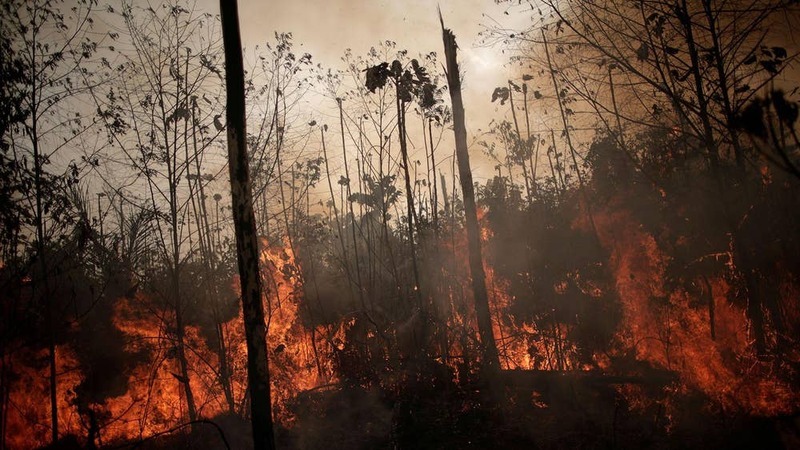
HERE, Amazon engage in $1 bn deal to support AI-powered, live streaming map
HERE Technologies (HERE) and Amazon Web Services, Inc. (AWS) have been engaged in 10-year, $1 ...

The Amazon rainforest, this wonder of nature sprawling across nine countries in Latin America, holds a special place on this planet.
Faced with stark climate and biodiversity crises, we cannot afford more damage to it – or to human health from the haze that hangs over communities and cities. We must help Brazil extinguish these fires and offer long-term support to prevent further illegal deforestation, The Independent reported.
To get the job done, it is important to understand that while fires are burning in record numbers, they happen every year. The blazes and wider deforestation are driven by demand for agricultural land to meet the growing global demand for beef and animal feed. Rising global temperatures are also an exacerbating factor.
There is a lot Brazil itself can quickly do once it has dealt with the immediate crisis of extinguishing the blazes. The country has a strong historical tradition of protecting the Amazon; in fact, between 2004 and 2012, Brazil managed to reduce deforestation by over 80 per cent. Yet since then we have gone backwards. In the immediate term, we need to do three key things.
Firstly, it is time to return to stronger enforcement. More than 100 countries including Brazil have legislation enshrining the right to a healthy environment. But it is useless if it is not enforced properly. The message needs to be sent actions that destroy our natural world will not be tolerated.
Secondly, recent global assessments have shown that indigenous communities living close to nature are far better stewards of the forests and land. It is essential that they are given more control and their rights are protected. This way our vital ecosystems will be stewarded effectively.
Offering incentives to landowners and farmers – such as payments for conservation – has also worked. The international community and private sector have a clear role to play here. The Sustainable Commodities Facility is one route to provide finance to Brazilian farmers to grow soy on already cleared land instead of causing more deforestation.
But the Amazon is just one piece of the puzzle. Just as the rainforest is a haven for biodiversity and a natural defense against global warming, so too are the Congo Basin and Indonesian rainforests.
Wildfires are raging across Indonesia, as they do regularly. According to an analysis of satellite data run by the UNEPGRID center in Geneva, there were more fires burning in the Democratic Republic of the Congo and Angola than Brazil between 19 and 26 August.
Protecting mega forests is clearly a global imperative. And the biggest positive action we could take is to reform the global food systems that are driving the climate crisis, biodiversity loss, water insecurity, and soil and water pollution.
Agriculture and related land-use change are responsible for over 70 per cent of tropical deforestation and around one quarter of all greenhouse gas emissions.
Brazil’s drop in deforestation ended when commodity prices increased, demonstrating a clear link to the production and export of soy, beef and, to a lesser extent, ethanol/sugarcane. Increases in commodity prices have always led to more land grabbing globally. They have been a major driver of the Indonesian fires since the early 1980s.
We can break this cycle.
The private sector must step up, adopting zero-deforestation and sustainable commodity supply chain targets. Governments need to shift to more long-term public policies for sustainable agricultural production, integrated land-use planning at the national scale and sustainability standards. And citizens should continue to stand up and demand more responsible environmental policies from their governments – and their right to do so must be protected.
If we used all of the food we produced – we currently waste or lose about one-third – there would be less need to clear land. By switching to more sustainable proteins and a more plant-based diet, we can reduce the global demand for meat. Our actions on an individual level are important.
As we head towards 2020 – a crucial year in which the Paris Agreement will hit full stride, we need to remember the heart-breaking images of this natural wonder ablaze and do everything in our power to change our relationship with nature before it is too late.
HERE Technologies (HERE) and Amazon Web Services, Inc. (AWS) have been engaged in 10-year, $1 ...
Earth reached its warmest year on record in 2024, the University of Virginia (UVA) said, ...
Orange Egypt alongside the French consulting firm Sofrecom, part of Orange Group, copped “Telecom Review ...


اترك تعليقا